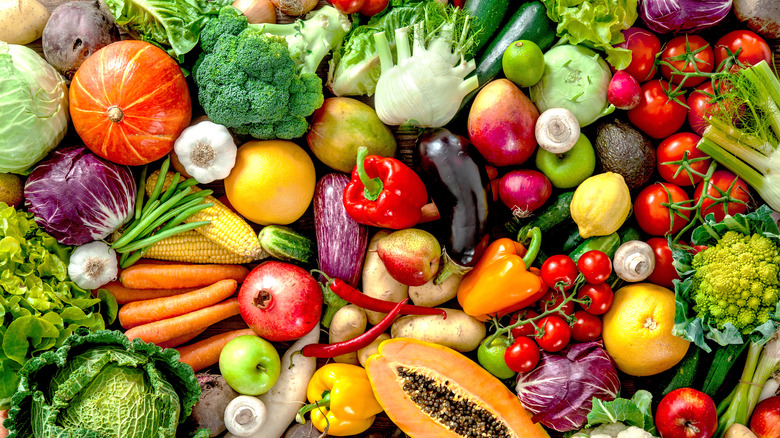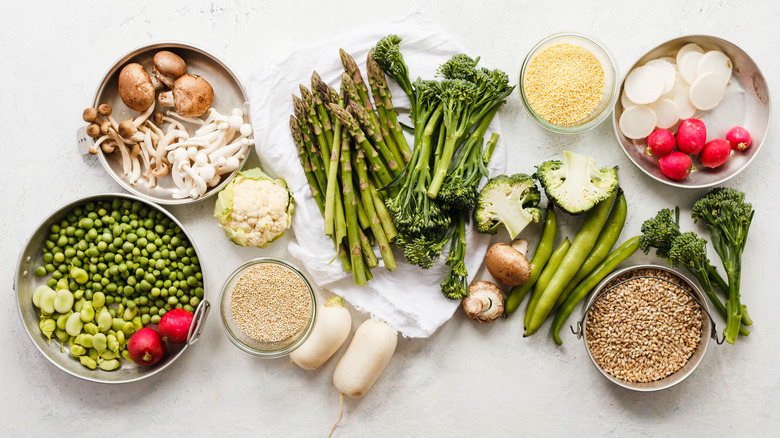Plant Based Vs Vegan: What's The Difference?
You've reached a point where you decide that eating fish and meat is not an option for you anymore. But you're not too keen on the idea of giving up eggs or dairy, and you can hear the sound of your heart breaking when you're told that butter could well enter the exclusion zone. What happens now?
One option is to go with a plant-based diet, which doesn't mean that you've given up all animal byproducts like honey, eggs, or even dairy. In a blog written for Harvard Health, Kathy McManus of the Dana Farber Cancer Institute says going plant-based means that you are choosing to eat more food which comes from plant sources while not necessarily avoiding meat or dairy altogether. Foods that are acceptable in a plant-based diet include fruits and vegetables, nuts, seeds, oils, whole grains, legumes, and beans. Doctors have long supported the idea of plant-based diets (including the Mediterranean Diet, which allows you to eat fish) because it helps lower the risk of heart disease, high blood pressure, and diabetes.
McManus says there is a variety of plant-based diets to choose from, from semi-vegetarian (which includes eggs, dairy, and the occasional meat or seafood meal), pescetarian (which includes fish and other seafood), and lacto-ovo vegetarian, (which includes eggs and dairy).
Being vegan means giving up more than meat in your meals
Veganism goes beyond the food you eat. The Vegan Society defines veganism as a lifestyle that excludes all forms of exploitation and cruelty to animals for any purposes, and that includes food, makeup, and clothing. As a result, vegans tend to exclude all animal products from their diets, including fish, shellfish, insects, dairy, eggs, and honey. They also follow a strict code on the use of products that might have made use of animals for testing or entertainment. Like vegetarians or those who practice a plant-based diet, vegans live on fruits, vegetables, nuts, grains, seeds, beans, and pulses; but they are also against using personal items such as handbags or shoes, that are made with animal fur or leather.
Like many doctors, McManus supports the benefits of going on a plant-based diet, as she believes it offers all the necessary proteins, fats, carbohydrates, vitamins, and minerals that we need to stay healthy. But she advises that vegans may need to add a vitamin B12 supplement to their diets to make sure their ethical lifestyle doesn't cost them their health in the meantime.

